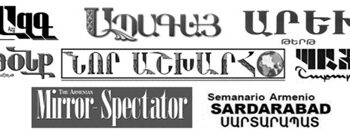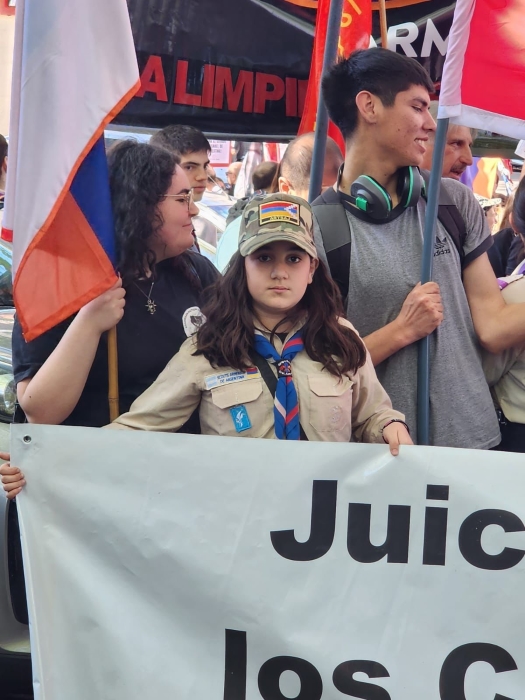By Hagop Avedikian
Last week, azg.am published an article titled “Create a Government in Exile of the Republic of Artsakh” as a proposal, admonition and a demand addressed first to the Artsakh Armenians who emigrated to the Republic of Armenia, and secondly to all Armenians, to encourage and support this initiative. Right away, I was pleased to find other articles with the same proposals on the Internet, which proves that this or similar initiatives can become public demands emerging from multiple voices. This is because the situation created after the “surrender” of Stepanakert and other territories of Artsakh, the difficult situation of more than 100 thousand Artsakh Armenians, the issues of the future protection of the rights of the latter, as well as already noticeable foreign and domestic sad circumstances, all remain unresolved, while it is necessary to find urgent and organized solutions for them.
The proposal, which is embodied in the title, is to endow the Artsakh Armenians with a higher representative body, preferably with the status of a government in exile, bearing in mind the compelling fact that such a body is necessary for international relations with states, the United Nations and its subsidiary structures, national and foreign organizations, press and more. It would, finally, protect the interests of the Artsakh Armenians and cooperate with the state bodies of Armenia, local organizations and individuals. The existence of such a representative body is also very necessary for diasporan Armenian organizations and individual philanthropists, whose 30-year efforts have been great in the reconstruction of Artsakh and in the creation of a school network and sub-structures. I am more than confident that proof already exists that the diasporan Armenians are more than willing to provide political, public relations, and financial support to Artsakh Armenians and their/our cause.
I didn’t use the word lawsuit in vain. Right now, urgently, we have the most serious need to launch a judicial assault against President Ilham Aliyev and Azerbaijan, and against their accomplices. First of all, it must be in defense of the captured statesmen of the Republic of Artsakh, who will be subjected to torture and humiliation in Azerbaijani jails. They appear currently to be abandoned by the Armenian authorities, giving the president of Russia the opportunity to refer to the ill will of official Yerevan towards them and in this way to feel free in that sense not to recognize obligations, and not to take any steps.
Second and more fundamentally, we must file a lawsuit against Aliyev’s regime for not carrying out the double judgments of the International Court of La Hague, for keeping 120 thousand Artsakh residents under siege for 9 months, and then attacking the starving population with modern weapons and conducting a massacre.
Thirdly, there are numerous testimonies, also by the Azerbaijani media, about the atrocities, slaughters and other horrific acts committed against individual citizens of Artsakh. Only a body endowed with state powers can organize the hard work of gathering witnesses and testimonies, preparing proper court documents and presenting them to the court.
Fourth, it is no less important to prepare the documentation of state, public and personal properties, and immovable and movable belongings. Only the highest state body can undertake such a difficult duty.
And there is still other work to be done, equally and more important, such as the settlement, food, health care and care of refugees, as well as providing them with work, receiving foreign and domestic donations, and work in the adjacent provinces.
The numerous mentioned and not yet mentioned works will require huge financial resources. Where will these funds come from? Are there any cents left in the state treasury of Artsakh? Have they not been spent on first necessities? And in general, with what means will the newly created structure function? This is a question which the rich Armenians in Armenia and the diaspora may be able to answer, at least in the initial period.
Probably, some will point to the state of Armenia, which recently received, under the condition of helping the Artsakh Armenians, the poor, pitiful amount of 11.5 million dollars from the United States, and will receive only 24 million euros from the European Union. How will it meet all the needs, which require the allocation of hundreds of millions?
In addition to this, the main obstacle to the creation of a government in exile may potentially be the current government of Armenia, which in the last 5 years has not allowed the existence of any organization outside of itself. A reasonable government would be the first to initiate the formation of such a body, which would be used as a true and natural claimant on international platforms.
Nevertheless, one should never retreat in the face of the abovementioned and many other obstacles. Like all governments, this government will end sooner or later.
Let’s not forget that the Republic of Artsakh had and will continue to have all the structures and symbols necessary for a state, as an unrecognized but de facto functioning government, like many other bodies around the world.
The Artsakh story is not finished. The ones who will keep that story going will be the Artsakh Armenians with their representative, although for now exiled, government, with the efforts of all Armenians.
(Hagop Avedikian is a founder and editor of the Yerevan-based newspaper Azg, which helped introduce Western-style journalism to Armenia.)
The Armenian Mirror-Spectator







